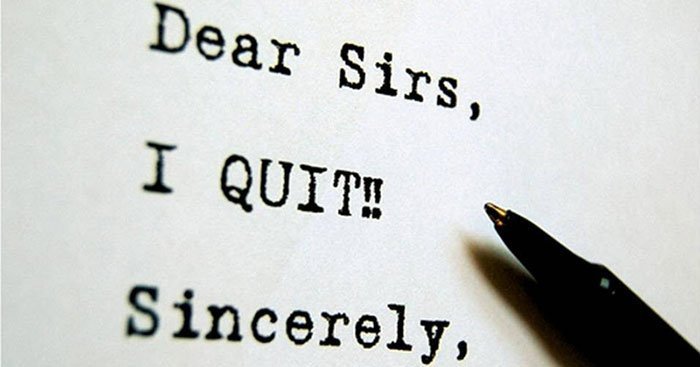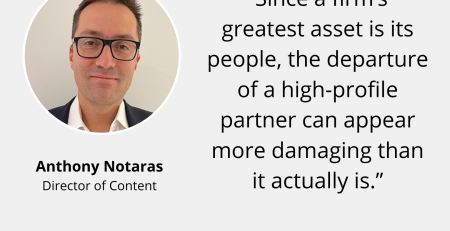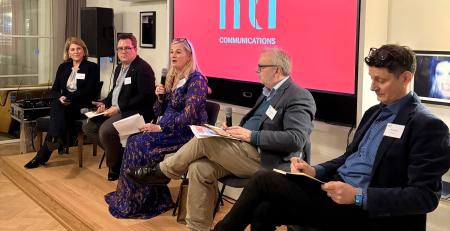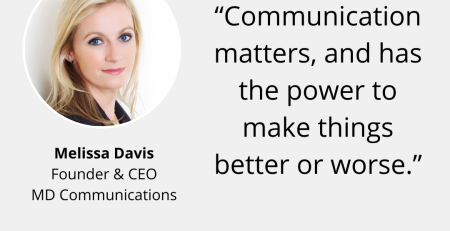Communication, it is now assumed, is all about platforms like Twitter – powerful figures check the micro-blogging site to find out if they have been fired, and it’s where we expect to see insults traded.
But the last few weeks, I’ve been seeing an awful lot of old-fashioned letters making the headlines. People have been reaching for their Mont Blancs to top and tail fairly lengthy missives.
One may as well start with Alastair Campbell’s letter to Jeremy Corbyn.
‘Dear Jeremy… In normal times, with a government having failed so badly for so long to address the challenges of the time, not just Brexit but so much else, the people would look towards the opposition not merely to oppose, but because they see a clear, credible, coherent alternative for government. This simply is not happening. It is incumbent on everyone in the Labour Party – but especially you as leader – to reflect and take responsibility for what now happens. I see no sign that you and your office have grasped the seriousness of what is happening, let alone devised or begun to execute a strategy to respond and defeat it.’
There are just a few of Campbell’s 3,500 words in an epistle reproduced in full by newspaper The New European.
But that’s not all. With ministers resigning or being fired as we gain a new prime minister, there has been a proper flurry of stationery flying.
Here’s now-former chancellor Philip Hammond resigning by letter to Theresa May, shortly before she resigned as prime minister: ‘It has been a privilege to serve as your Chancellor for just over three years since you assumed office in July 2016. Despite the uncertainty created by the unresolved issue of Brexit, we have been able to make notable progress in rebuilding the public finances and preparing the British economy for the opportunities ahead.’
Before him, we had (now ex-) foreign office minister Sir Alan Duncan who, in two pages of text typed on House of Commons paper noted it was “tragic” that “the dark cloud of Brexit” was getting in the way of UK influence in the world.
And new ministers will be getting letters from professional bodies, charities, campaign groups, and businesses. Some of them will be on the long side, including phrases like, ‘we look forward to continuing to,’ and ‘we’re sure you share your predecessor’s commitment to,’. And so it goes on.
In an age where press releases are often regarded as a bit windily long, a lot of people are sending and receiving lengthy letters – some very public, others more private.
And with the public ones, journalists and voters are reading every line. No one is saying social media, and Twitter in particular, is dead, but as letters are getting so much attention, here are a few thoughts about why the letter can still be a very effective communications strategy.
1. Letters can be long, and here this is a strength. No one’s yelling, ‘what’s your top line?’ as you type. There’s space to expand, include nuance, and put down markers for the future.
2. You don’t get interrupted in a letter. There’s no pesky journalist asking you the same question 14 times; no opponent trying to talk over you – this is your time.
3. Letters are personal. Even Campbell’s letter to Corbyn, written with publication in mind, is personal – and where that personal address involves a bit of conflict, it’s all the more gripping.
4. Letters create a record and leave a trail. There are still ‘correspondence units’ in professional bodies, government ministries, big businesses and charities. In creating a record they also put certain things on the record. They are often used to try and box the recipient into a certain position, or put pressure on them – phrases like ‘as you know’ and ‘given you are committed to’ abound.
5. Many people read every line. Campbell is unusual in being so openly rude to Corbyn – others prefer passive aggressive or oblique jibes, and spotting those is frankly entertaining. Deciding not to thank someone in a resignation letter, or praising one thing, but not another – such nuances make the headlines.
6. A letter can be beautifully written – something no one ever says about even the best press release.
7. You can, in any case, take a photo of a letter and tweet it – giving your social media content which others can share.
So, stock up on stamps, and don’t recycle that unused writing paper you found the other day – letter writing remains a highly effective part of the communications and lobbying toolkit.
If you’d like advice on when to put pen to paper, I hope you’ll get in touch.
Yours sincerely,
Melissa Davis












